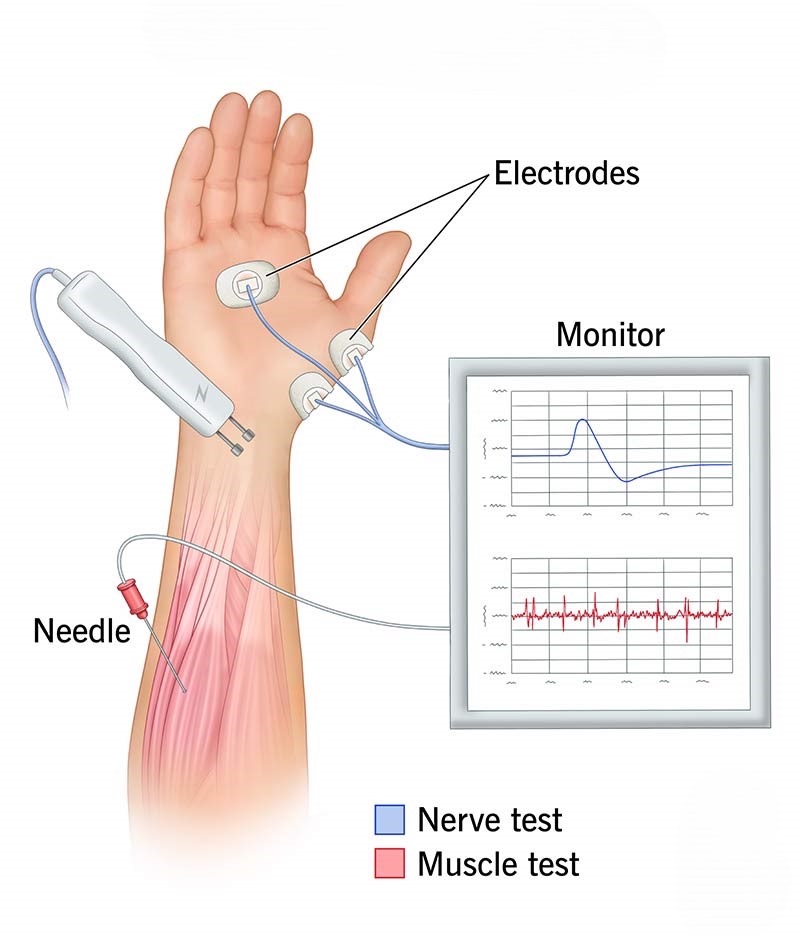EMG Testing at Orthopedic Specialists of SW Florida
Electromyography (EMG) is a diagnostic procedure used to assess the health of muscles and the nerve cells that control them (motor neurons). This test is crucial in diagnosing conditions that affect the nervous system and muscles, helping your physician develop the most effective treatment plan.
At Orthopedic Specialists of SW Florida, we offer comprehensive EMG testing to identify neuromuscular disorders and other conditions that may be causing pain, weakness, or abnormal muscle function.
What is EMG Testing?
EMG testing measures the electrical activity in muscles and nerves. During the test, a thin needle electrode is inserted into the muscle to record electrical signals, both at rest and during contraction. These signals can help detect abnormal muscle or nerve function.
EMG is often performed in conjunction with a nerve conduction study (NCS), which evaluates how well and how fast electrical signals move through your peripheral nerves. Together, these tests provide a detailed view of how the nerves and muscles are functioning.
Conditions Diagnosed with EMG
EMG testing can help diagnose a wide range of conditions, including:
- Carpal Tunnel Syndrome
- Radiculopathy (pinched nerves in the spine)
- Peripheral Neuropathy
- Herniated Discs
- Nerve Compression Syndromes
- Muscle Disorders (e.g., Muscular Dystrophy, Myopathies)
- ALS (Amyotrophic Lateral Sclerosis)
- Guillain-Barré Syndrome
- Sciatica
- Myasthenia Gravis
- Ulnar Neuropathy


